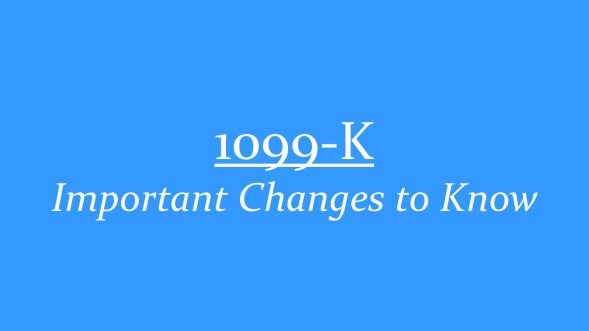1099-K: Changes to Know
September 13, 2022
Are you a small business owner or an individual who receives payments through Venmo, Zelle, or another third-party payment platform? If so, you need to know about tax reporting changes that will affect your future tax filings.
Form 1099-K “Payment Card and Third-Party Network Transactions” covers payments for goods and services paid for using credit cards, debit cards, or other cards that are accepted via third-party payment platforms. This could range from transactions as obvious as your business using Venmo to ring up customers’ purchases to something as seemingly innocuous as receiving your babysitting money through Zelle.
You may not have thought about those transactions in the past. Previously, federal tax code only required payment processors to report to you (and the IRS) transactions if you received over $20,000 from 200 or more transactions. However, beginning with next year’s filings, anyone receiving $600 or more in total, no matter the number of transactions, will need to send you a Form 1099-K.
Therefore, it is very important that you maintain complete and accurate records – even if the amount or purpose seems trivial. The third party payment processors are mere middlemen – they have do not know whether that $100 was money you earned working as a babysitter or if it was just a birthday gift from your grandmother. It may take the IRS a long time – perhaps years – to implement procedures for properly distinguishing payments for goods and services that are taxable from nontaxable monetary exchanges. Make sure you report your records and tax returns are complete and accurate.
To learn more about Form 1099-K, visit the IRS’ website.
For tax preparation assistance, call Strzalka Law Office at 773-631-9215 or email us at StrzalkaLaw@maslawoffice.com.



